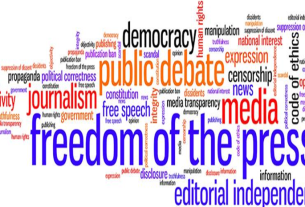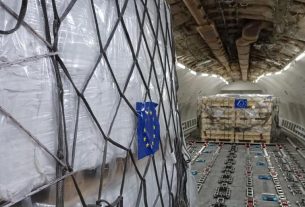In a notable development in U.S.-China relations, three American nationals wrongfully detained in China have been released and returned to the United States as part of a prisoner exchange. The move, which coincides with the Thanksgiving holiday, is being closely scrutinized by diplomats and analysts alike, with some suggesting that it could signal China’s intentions to engage with the incoming Trump administration.
The Exchange and Its Participants
The three Americans—Mark Swidan, Kai Li, and John Leung—arrived back on U.S. soil after years of detention in China. Their return is part of a bilateral agreement, the details of which have not been fully disclosed by the U.S. State Department. However, Secretary of State Antony Blinken confirmed that he had spoken to the three individuals while they were en route back to the U.S., expressing his relief that they would soon be reunited with their families.
- Mark Swidan, a Texas resident, had been held in China since 2012 on charges of drug trafficking, which the U.S. government maintains were politically motivated.
- Kai Li, a New York native, was arrested in 2014 on charges of espionage.
- John Leung, a permanent resident of Hong Kong, had been detained for similar accusations related to espionage.
Chinese authorities have confirmed the return of three Chinese nationals, but like the U.S. side, details about the names of those individuals were not fully disclosed. However, it is known that some of the Chinese nationals involved had faced charges related to espionage and theft of U.S. technology.
Chinese Nationals Involved
One of the Chinese nationals involved in the swap was Xu Yanjun, an intelligence officer with China’s Ministry of State Security. Xu was convicted in 2021 for attempting to steal aviation technology from General Electric. He became the first Chinese intelligence officer to be extradited to the U.S., highlighting the high-profile nature of the exchange. Another individual, Ji Chaojun, was sentenced to prison in 2023 for espionage activities involving the U.S.
In addition, Chinese authorities mentioned the return of a “fugitive,” implying a broader effort by China to secure the return of individuals accused of crimes abroad.
Diplomatic and Political Context
The timing of the exchange, which took place just ahead of the Thanksgiving holiday, has fueled speculation about its broader diplomatic implications. Analysts suggest that China’s decision to engage in this rare prisoner swap may be an attempt to signal a willingness to negotiate with the incoming administration of former President Donald Trump.
Yang Haiying, a professor at Shizuoka University in Japan, noted that prisoner exchanges of this nature are unusual for China and could be seen as a way to test the waters with the incoming U.S. administration. He described the exchange as a form of “hostage trading,” with China potentially seeking to build rapport with Trump’s team and explore the possibility of further bilateral agreements, including in areas such as trade or international security.
“It could be a signal to Trump that China is open to negotiating, whether it be on trade, technology, or global issues like the South China Sea,” said Yang.
China’s Political Calculations
From China’s perspective, the swap serves multiple purposes. First, it allows the Chinese government to portray itself as a protector of its citizens, framing the return of its nationals as a diplomatic victory. Beijing has long emphasized its stance against what it perceives as politically motivated detentions of Chinese citizens by foreign governments, especially the U.S.
Commentator Guo Min suggested that this move was not purely humanitarian but politically driven. He stated that the Chinese government sees such actions as a way to bolster domestic support by demonstrating its ability to secure the return of its citizens from abroad, particularly in the context of ongoing U.S.-China tensions.
Broader Implications for U.S.-China Relations
The prisoner exchange highlights the complexities of U.S.-China relations, which are marked by political and economic rivalry, as well as ongoing concerns about human rights, espionage, and trade. While the release of detained individuals is a positive development, it does not erase the underlying tensions between the two nations.
On a related note, the U.S. State Department recently downgraded its travel advisory for China, shifting it from “Level 3: Reconsider Travel” to “Level 2: Exercise Extreme Caution.” The new advisory emphasizes the risk of “arbitrary enforcement of local laws” and the potential for exit bans in China, particularly in the context of political tensions.
Conclusion
The recent U.S.-China prisoner swap is a rare but significant diplomatic development that underscores the complex and often contentious relationship between the two global powers. As China and the U.S. look toward future negotiations, this exchange may serve as a precursor to broader diplomatic discussions, particularly with the Trump administration set to resume leadership in the U.S. While it remains to be seen whether this marks the beginning of a new phase in U.S.-China relations, the successful repatriation of these individuals will likely influence ongoing diplomatic dialogue between the two nations.



